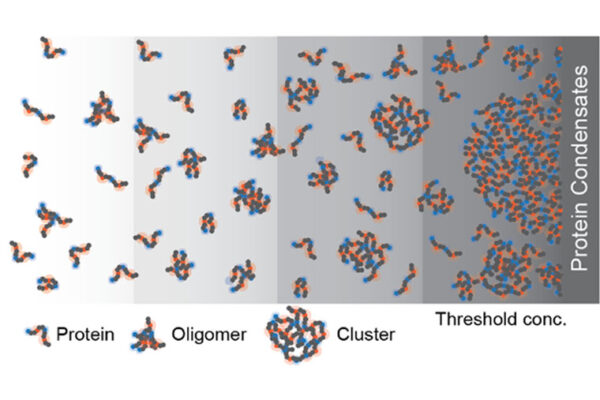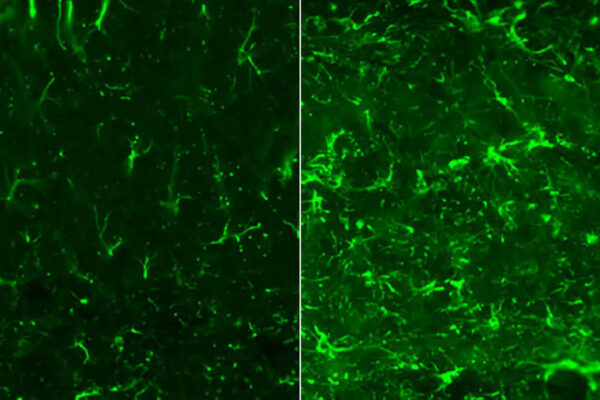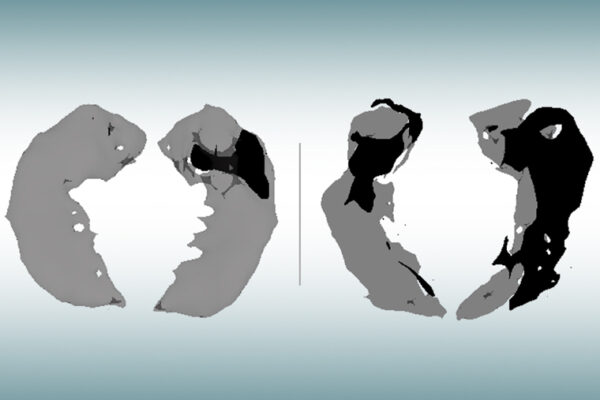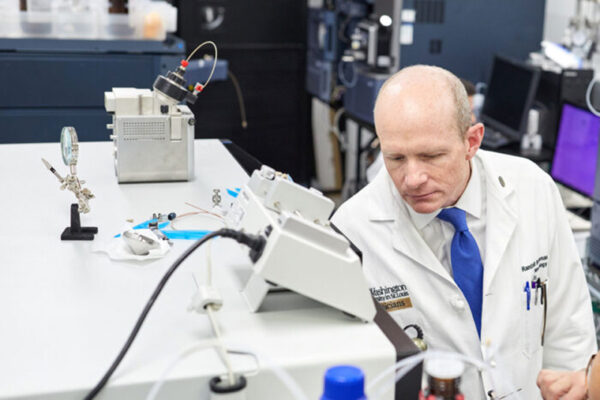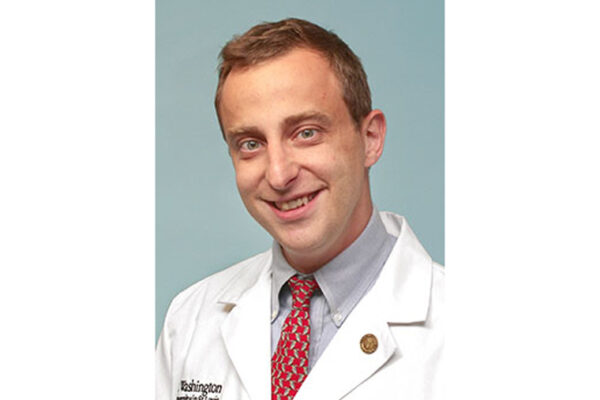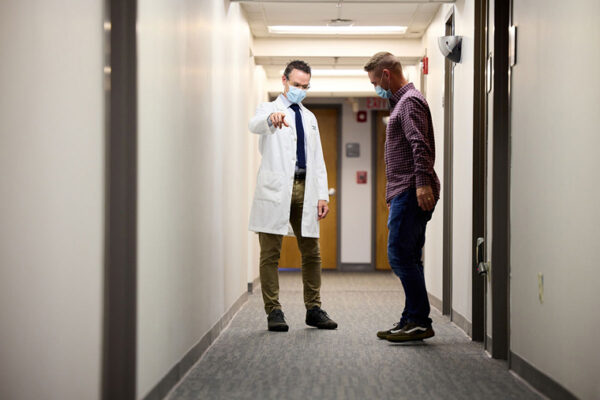New structure found in cells
A research group led by Rohit Pappu in the McKelvey School of Engineering and Anthony Hyman at the Max Planck Institute have discovered a new, relevant level of structure in cells.
Race of people given Alzheimer’s blood tests may affect interpretation of results
Three of four blood tests used to identify people in early stages of Alzheimer’s disease perform differently in Black individuals compared to white individuals, according to a new study from Washington University School of Medicine. Such differences may put Black patients at risk of misdiagnosis.
New strategy reduces brain damage in Alzheimer’s and related disorders, in mice
Researchers at Washington University School of Medicine have discovered that targeting astrocytes reduces tau-related brain damage and inflammation in mice, a finding that could lead to better therapies for Alzheimer’s and related tauopathies.
Damage early in Alzheimer’s disease ID’d via novel MRI approach
New research from Washington University School of Medicine shows that this novel MRI approach can identify brain cell damage in people at early stages of Alzheimer’s, before tissue shrinkage is visible on traditional MRI scans.
Does improving sleep reduce signs of early Alzheimer’s disease?
School of Medicine researchers are launching a phase 2 clinical trial to study whether using medication to treat sleep problems in older adults can reduce signs of early Alzheimer’s disease.
Blood test for Alzheimer’s highly accurate in large, international study
Using mass spectrometry, Washington University School of Medicine researchers have developed a blood test that is up to 93% accurate at identifying people at risk of Alzheimer’s dementia. The findings suggest that the test should be considered for routine screening and diagnosis.
Ances honored by Down syndrome society
Beau M. Ances, MD, PhD, the Daniel J. Brennan Professor of Neurology at the School of Medicine, recently received the Shining Star Award from the Down Syndrome Association of Greater St. Louis.
$11.5 million commitment supports new Alzheimer’s prevention clinical trial
Longtime St. Louis benefactor Joanne Knight has committed up to $11.5 million to Washington University School of Medicine in St. Louis to support an innovative clinical trial aimed at preventing Alzheimer’s disease by treating people before the first signs of the illness appear in the brain.
New Alzheimer’s prevention trial in young people
Researchers at Washington University School of Medicine are conducting an Alzheimer’s prevention trial with young adults from high-risk families to evaluate whether an investigational drug can clear a key Alzheimer’s protein, amyloid beta, and slow or stop the disease.
Racial equity in Alzheimer’s research focus of $7 million in grants
Two research teams at Washington University — one led by Joyce Balls-Berry; the other led by Darrell Hudson and Ganesh Babulal — have received grants totaling $7 million to advance racial equity in Alzheimer’s disease research.
Older Stories
